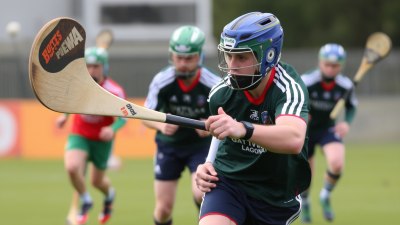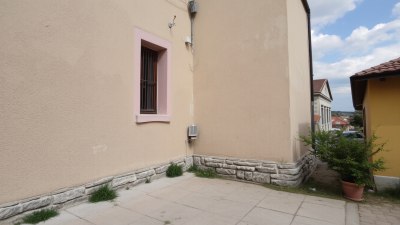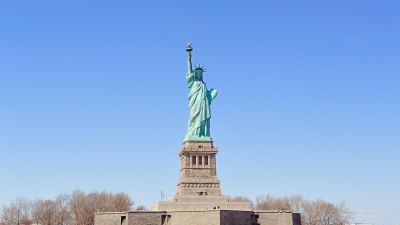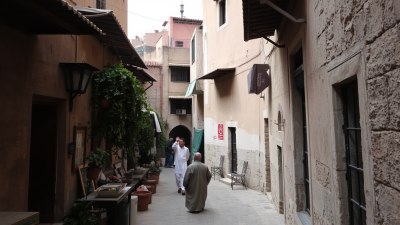The Culture of Hurling and its Irish Heritage
Explore the cultural significance and heritage of hurling in Ireland, its traditions, and its impact on communities.

Image created with Flux Schnell
Hurling, often referred to as the fastest field sport in the world, is an integral part of Irish culture, embodying centuries of tradition. The game, played with a wooden stick called a hurley and a ball known as a sliotar, has roots that delve deep into Irish history, linking modern Ireland with its ancient past.
The origins of hurling can be traced back over 3,000 years, with references to a game reminiscent of hurling appearing in Irish mythology and literature. This ancient sport is often associated with the legendary hero Cú Chulainn, who was said to have played a version of the game. The heart of hurling lies in its intertwining with Irish identity, serving not only as a pastime but as a means of preserving cultural heritage and community bonding.
The Rules and Objective of Hurling
The rules of hurling are quite distinct, requiring players to hit the sliotar with their hurleys while maintaining possession and attempting to score points. Each goal is worth three points, while scoring a point over the crossbar is worth one point. Teams of 15 players engage in a high-paced contest that combines speed, skill, and strategy, drawing in spectators and fostering a shared community spirit.
Hurling as a Cultural Symbol
Throughout Ireland, hurling serves as a powerful symbol of community identity and national pride. It transcends socio-economic boundaries, uniting individuals from all backgrounds under a common banner. The GAA (Gaelic Athletic Association), founded in 1884, has played an instrumental role in preserving and promoting hurling and other traditional Irish sports. The GAA not only organizes competitions but also fosters community engagement by encouraging local clubs and teams.
Club championships and inter-county competitions draw in massive crowds, especially during significant events like the All-Ireland Hurling Championship. These tournaments showcase not only the sport but also the culture, with local traditions, songs, and rituals coming to life on match days. The pride associated with representing one’s county or local club fosters a sense of belonging, making hurling more than just a sport; it becomes a vehicle for cultural expression.
Training and Development in Hurling
From a young age, children in Ireland are introduced to hurling, often beginning their training in primary schools and progressing to local clubs. Various development programs encourage youth participation, focusing on skill progression while instilling the values of sportsmanship, teamwork, and respect for others. Coaches, many of whom are former players, play a vital role in nurturing young talent and passing on the rich traditions associated with the sport.
Various schools also incorporate hurling into their physical education curriculums, allowing students to learn and appreciate the sport's historical and cultural significance. This outreach not only develops athletic skills but also reinforces connections with Irish culture, ensuring that future generations remain engaged and proud of their heritage.
The Role of Hurling in Irish Festivals and Events
Hurling's prominence in Irish culture extends beyond the field, finding a place in numerous festivals and cultural events throughout the year. Events such as Fleadh Cheoil na hÉireann, Ireland’s premier traditional music festival, often feature hurling displays or demonstrations, linking the sport with Ireland's rich musical and artistic heritage.
Additionally, during the celebration of St. Patrick’s Day, many communities organize parades that showcase hurling along with other elements of Irish culture, further solidifying its place within the national narrative. These events are not just about sport; they represent a gathering of communities and generations, fostering a sense of continuity and shared experience.
International Presence and Global Growth of Hurling
While hurling has its roots firmly planted in Ireland, its prominence is increasingly felt on the international stage. The Irish diaspora has played a crucial role in spreading the sport across the globe, with expatriate communities establishing clubs in countries such as the United States, Canada, Australia, and Great Britain. These clubs not only compete in their own leagues but often participate in tournaments that continue to uphold the values and traditions of hurling.
International tournaments like the GAA World Games provide a platform for players from Irish clubs around the world to showcase their skills and foster connections. These events are instrumental in promoting hurling’s heritage but, more importantly, serve to maintain and strengthen ties among the global Irish community.
Hurling's Influence on Irish Arts and Literature
The impact of hurling on Irish arts and literature cannot be overstated. The sport has inspired countless works of literature, ranging from poetry to modern novels, reflecting the cultural roots of hurling and the values it embodies. Writers often weave hurling into their narratives as a rite of passage or as a metaphor for life’s struggles and triumphs.
Likewise, hurling features prominently in the music of Ireland, with traditional songs frequently celebrating the sport or recounting legendary matches. Hymns dedicated to famous players and club victories are sung with pride, further embedding hurling within the fabric of Irish cultural expression.
Modern Challenges and the Future of Hurling
While the tradition of hurling remains strong, modern challenges threaten the future of the sport. Increasing urbanization and the availability of alternative sports have led to declining participation rates in some areas, prompting stakeholders to seek innovative solutions to retain engagement. The GAA and local clubs are actively working to modernize approaches to training, promotion, and engagement with younger audiences, ensuring that hurling remains relevant.
Community outreach programs aim to engage schools and families, while social media campaigns highlight the excitement and community spirit that hurling fosters. By emphasizing inclusivity and accessibility, these initiatives seek to support the growth of hurling while remaining true to its rich cultural heritage.
Celebrating Hurling’s Legacy
The culture of hurling is deeply intertwined with Irish heritage, serving as a symbol of identity, community spirit, and shared history. As the sport continues to evolve, it remains crucial to honor and preserve its traditions while encouraging new generations to participate. Hurling provides not only a glimpse into Ireland’s past but also a dynamic avenue for cultural expression that brings people together. Engaging with hurling means engaging with the very essence of Irish identity, making it an everlasting emblem of pride and heritage.











